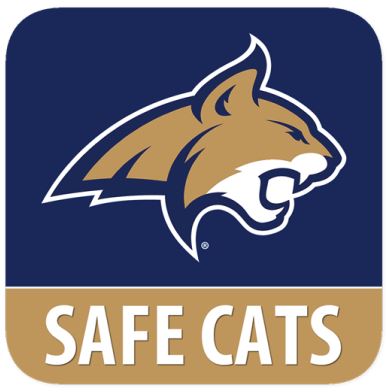What to Do in a Medical Emergency
In the event of an injury or illness that results in an emergency:
Immediate Emergency Actions
- Call 911 for serious injury: give the location of the incident and describe the incident and condition of victim. Do not hang up the phone until the dispatcher has dismissed you.
- Provide first aid to the victim to the best of your abilities.
- Wait for first responders to arrive and take over care of the victim: provide them with any information that you can.
- DO NOT move any injured or ill person unless life-threatening circumstances are present. Make the injured or ill person comfortable until first responders arrive.
- DO NOT give the injured or ill person any medications other than their own. The person must provide at least verbal authorization.
NOTE: Some behaviors may appear to be drug or alcohol related, but may be the result of a medical condition.
Identifying Specific Medical Emergencies:
Head Trauma: Injury following trauma to face and skull. To avoid furthering any harm, do not move a victim of severe head trauma; wait for first responders to arrive.
- Loss of consciousness
- Severely worsening headache
- Vomiting/nausea
- Dilation of one of more pupils
- Clear fluid leaking from nose or ears
- Confusion and trouble with speech
Bleeding: Serious bleeding following laceration or puncture.
- Types of bleeding:
- Capillary - minor bleeding usually caused by abrasion, vessels are typically able to clot and stop bleeding without intervention. Clean the wound and cover if the bleeding isn't slowing on its own.
- Venous - damage to a vein that can generally be stopped by applying even pressure and a bandage. Wounds still may require stitches: consult a medical professional with any concerns or if bleeding does not stop in a timely manner.
- Arterial - the most serious form of bleeding with a heavy, spurting flow of blood. Arterial wounds are usually deep and require immediate medical attention to prevent life-threatening blood loss.
Seizure: Sudden surge in electrical activity in the brain. Move objects away from from a seizure victim to prevent collision and further harm.
- Loss of consciousness
- Uncontrollable muscle spasms
- Clenched teeth and jaw
- Rapid eye movements
- Sudden collapse
Heart Attack: Failure or interruption in normal heart function potentially leading to incapacitation or death.
- Pressure, tightening or squeezing sensation in chest, neck, back or arms
- Shortness of breath
- Sudden nausea and abdominal pain
- Fatigue
- Lightheadedness and sudden dizziness and confusion
- Note: Women may experience atypical or milder symptoms compared to men.
Stroke: Sudden death of brain cells due to lack of oxygen caused by blockage or rupture of artery.
- Remember FAST: If the individual is exhibiting one or more of the following symptoms call 911 immediately.
- Facial drooping - Ask the individual to smile; if one side of the mouth does not respond, this is facial drooping.
- Arm numbness or weakness - Ask the individual to raise both arms in front of their body: if one arm drifts down, this is a sign of sudden arm weakness.
- Speech problems - The individual may have difficulty forming words or sentences.
- Time - A stroke is a serious and often fatal medical issue. Getting the individual professional help as quickly as possible could be the difference between life or death.
Alcohol Poisoning or Overdose: Dangerous loss of normal bodily functions following excessive doses of alcohol or drugs
- Nausea/vomiting
- Unresponsiveness and unconsciousness
- Irregular or slow breathing
- Abnormal skin color (pale and bluish or fully flushed)
First Aid Resources
Register for a Red Cross First Aid course near you

